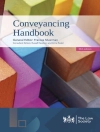A signal feature of legal and political institutions is that they exercise coercive power. The essays in this volume examine institutional coercion with the aim of trying to understand its nature, justification and limits. Included are essays that take a fresh look at perennial questions – what, if anything, can legitimate state exercises of coercive force? What is coercion in politics and law? – and essays that take a first or nearly first look at newer questions – may the state coercively hold certain terrorists indefinitely? Does the state coerce those seeking to join in same-sex marriage when it refuses to extend legal recognition to same-sex marriage? Can there be a just international order without some agency possessed of the final and rightful authority to coerce states? Leading scholars from philosophy, political science and law examine these and related questions shedding new light on an apparently inescapable feature of political and legal life: Coercion.
表中的内容
What is Coercion?.- How Did There Come To Be Two Kinds of Coercion?.- On Coercion.- Undue Influence as Coercive Offers in Clinical Trials.- Coercion and the State: Justification and Limits.- Coercion, Justice, and Democracy.- Democratic Legitimacy and the Reasoned Will of the People.- John Brown’s Duties: Obligation, Violence, and ‘Natural Duty’.- Coercion and the State: Legal Powers and Status.- Coercion, Neutrality, and Same-Sex Marriage.- The Cheshire Cat: Same-Sex Marriage, Religion, and Coercion by Exclusion.- Coercion and the State: National Security.- Indefinite Detention for Mega-Terrorists?.- The Great Right: Habeas Corpus.- Coercion and the International Order.- Coercion Abroad for the Protection of Rights.- Transnational Power, Coercion, and Democracy.- A Developmental Approach to the Legitimacy of Global Governance Institutions.- Global Economic Justice, Partiality, and Coercion.- International and Cosmopolitan Political Obligations.












